How to Choose the Perfect Winter Face Cream for Every Skin Type
Winter is when our skin really needs more care and attention than in other seasons. The harsh winter weather, low indoor humidity and freezing temperatures can all contribute to dry, flaky skin. We’ve all been there. Our skin feels dry and flaky, and no amount of cream seems to help. But don’t worry! There are creams out there that can help your skin look soft, supple, and shiny all winter long. Let’s look at how to choose the right cream for your winter skincare routine.
Understanding Your Skin Type in Winter
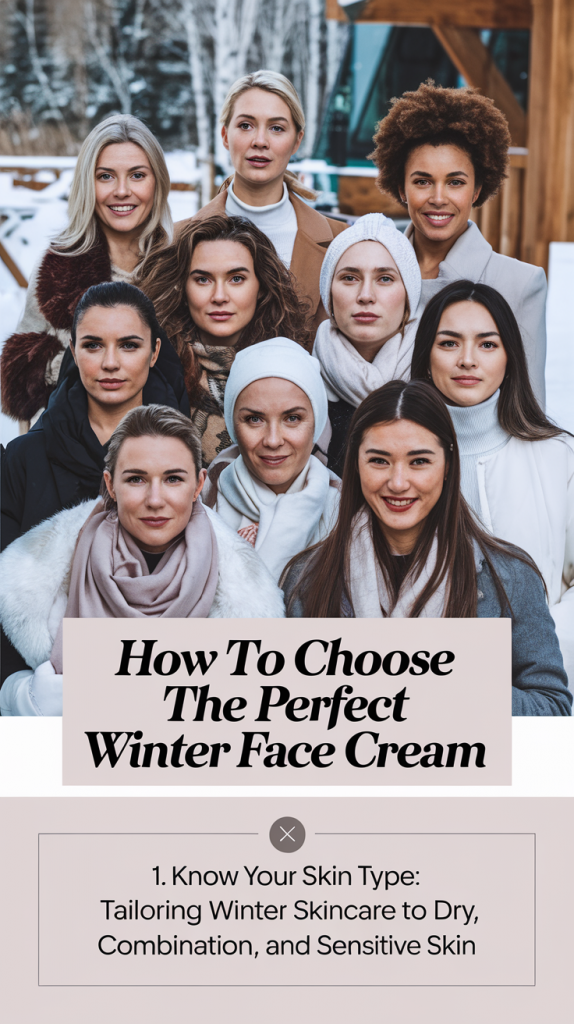
First, you need to know what skin type you have before choosing a winter cream. Having dry skin can be a nightmare in winter; it feels tight and itchy with some red patches. Using rich creams that provide moisture for a long time is best for this type of skin. Oily skin produces more oil; however, cold air can strip its natural moisture leading to overproduction of oil; choose a light oily-free cream to keep things balanced. Combination skin has both dry and oily parts; you need a cream that hydrates without being greasy. If you have sensitive skin, there is always redness and irritation, so choose a soothing cream.
Key Ingredients to Look for in Winter Moisturizers
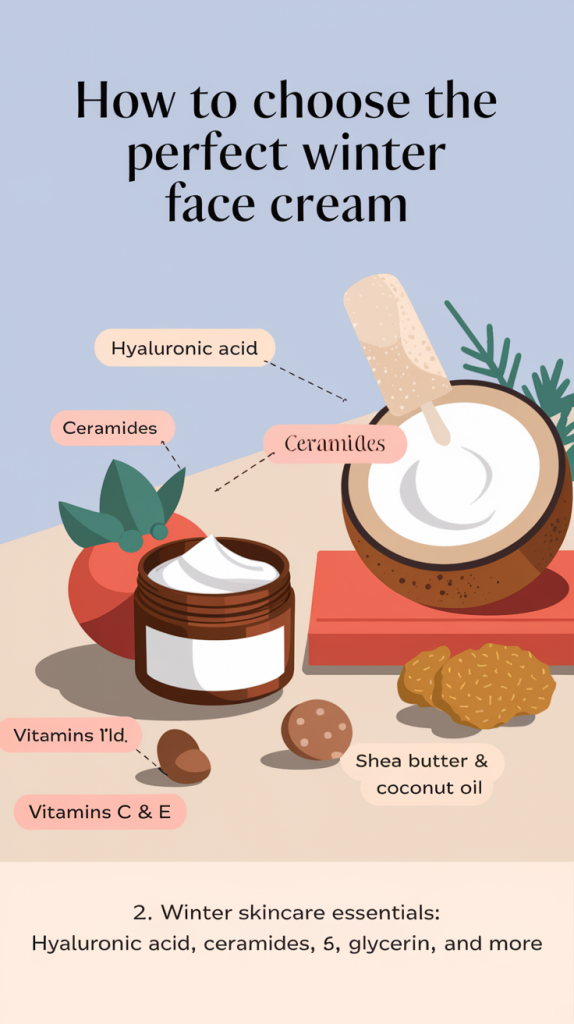
The concept of ingredients is key when selecting the right winter cream. Below are some of the best ingredients to be on the lookout for:
- Hyaluronic Acid: This superhero is not only moisturized but it also draws in water to your skin using that water to produce a supple skin and binds it inside, ensuring that your skin remains plump and dewy even in the driest situations.
- Ceramides: These are good at regaining the protective barrier of the skin thereby not only keeping the moisture in it but also excluding the environmental factors that can do harm to the skin.
- Glycerin: Glycerin, being a major draw for transmitting moisture to the deeper levels of the skin, is the best choice for dry winter months due to its property of attracting moisture from the air into the skin.
- Shea Butter & Coconut Oil: Luxurious and nutritious, these are the ones that are used to charge up the moisture stores, making it so that moisture gets sealed in naturally.
- Vitamins C & E: These antioxidants are great for promoting your skin with the help of the lasers that is the intrinsic radiant part of the skin that is protected from the environmental stressors.
Choosing the Right Texture for Your Skin
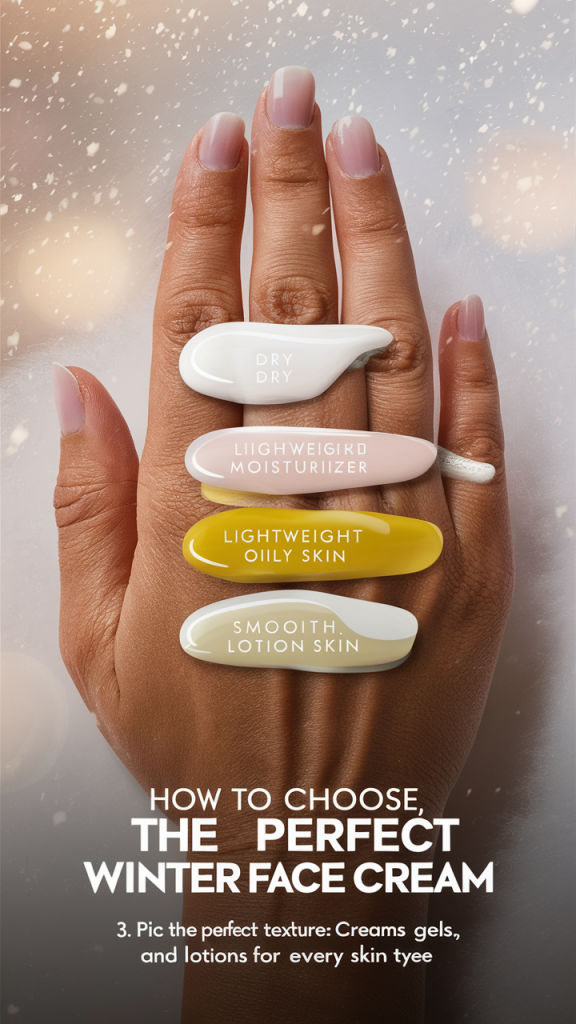
It’s not just about the technology; the texture is what really affects how you experience a product. If you’re looking to buy a cream in the autumn, make sure you choose one that’s thick enough to be stewed on your skin without getting too greasy. It’s also important to choose one that doesn’t cause makeup to bleed. If you don’t want to buy a new moisturising cream every day, just get a nice thick one and use it for a day. If you have oily skin, you might want to try a lightweight gel moisturiser that hydrates without clogging your pores. If you have combination skin, you might want to try using different creams or lotions. Creams are better at hydrating your skin, so they’re a great choice for winter.
My Daily Winter Skincare Routine
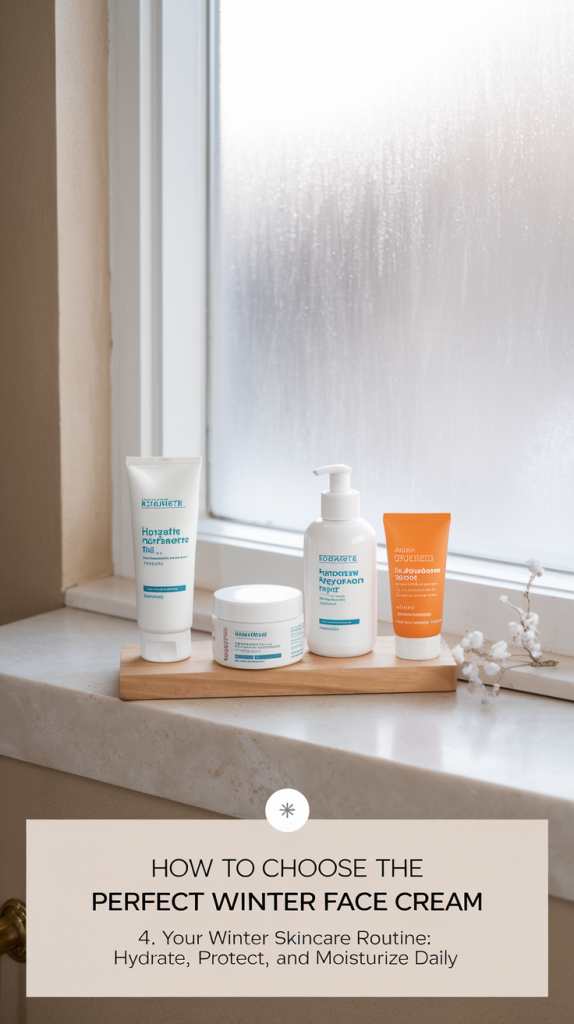
Making skincare a year-round commitment and incorporating a consistent winter skincare routine can pull off miraculous results. Here is a step-by-step guide that I usually stick to personally:
- Initiate with a Hydrating Cleanser: Use a cream or an oil-based cleanser that is mild and gentle to your skin and doesn’t harm your skin oils. Foaming cleansers are likely to be less suited for dry skin in winter so be sure to avoid them.
- Moisturize your Skin after it has Dried Off: Following face cleansing, smear the moisturizer on the damp skin, still somewhat wet, keeps the moisture of the skin well locked that way rather than applying it separately directly.
- Slacken off Sunscreen: On cloudy, or snowy days too, the UV rays are damaging, so one should always use sun protection. Apply SPF as the next to last step in your skincare routine.
Additional Winter Skincare Tips for Maximum Hydration
If you want to keep your skin happy and healthy during the dry winter months, you need to do more than just apply a good moisturiser. The best way to get and keep your skin moist is to use a home humidifier. Home heating systems often remove moisture from the air, which can lead to dehydration. A humidifier pulls the moisture out of the air, leaving your skin feeling cool and refreshed when you are at home or asleep.
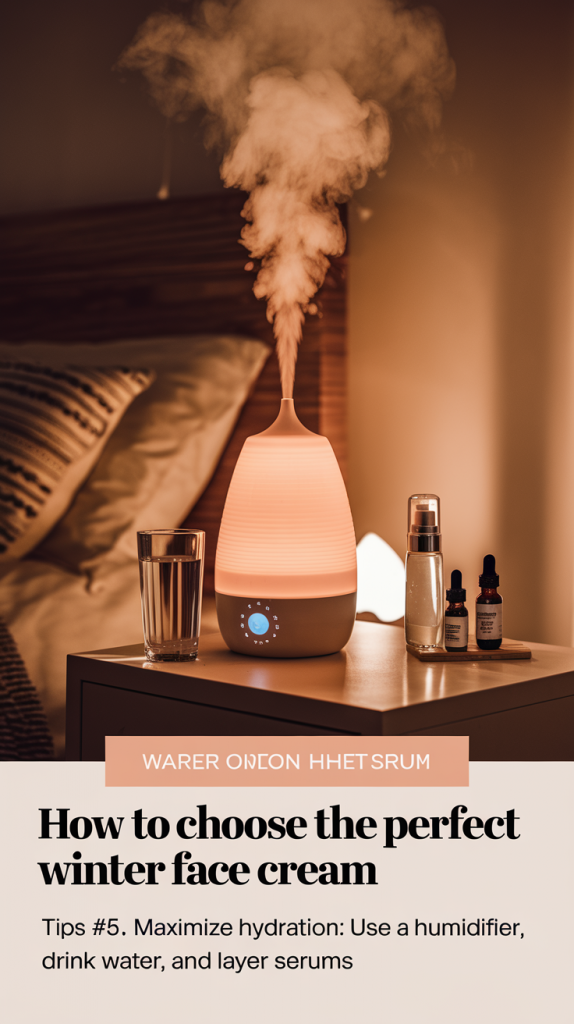
As well as using a humidifier, it is also important to drink plenty of water. Drinking enough water is one of the most important, if not the most important thing for keeping your skin soft and supple. I usually drink a lot of water throughout the day, and I drink a lot of water throughout the day because not only is it good for my whole body, but it also keeps the skin moisturised.
Along with a moisturiser, using a serum is a really good way to give your skin extra moisture. Serums are specifically made thicker than moisturisers and are able to penetrate beyond the top layer of skin. This allows your skin to benefit from more hydration at a deeper level, assuming your moisturiser is working on the surface layer to lock in moisture and protect the skin from external factors.
Common Winter Skin Conditions and How to Address Them
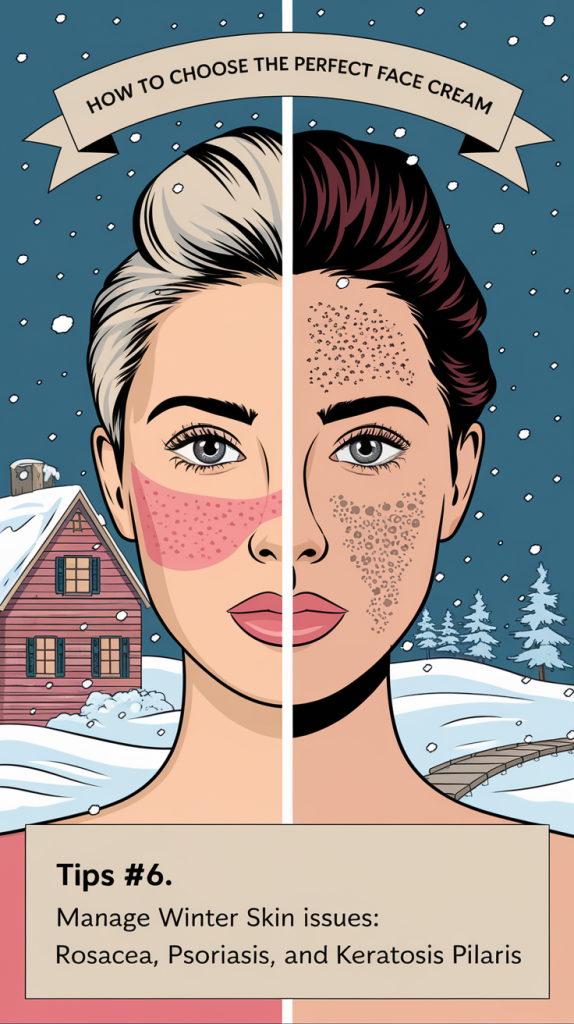
As most skin conditions are often caused by winter, it’s a good idea to know what to do to treat them. If you have rosacea, you might find that it flares up during the winter months. Look for creams that include good ingredients like colloidal oatmeal and aloe. Psoriasis can also flare up in the winter because the air is dry. A thick, greasy cream that holds in hydration and helps reduce rate-ups might be just the thing. If your keratosis pilaris is caused by too much sun, use this exfoliating cream with ingredients like urea or lactic acid.
Product Recommendations
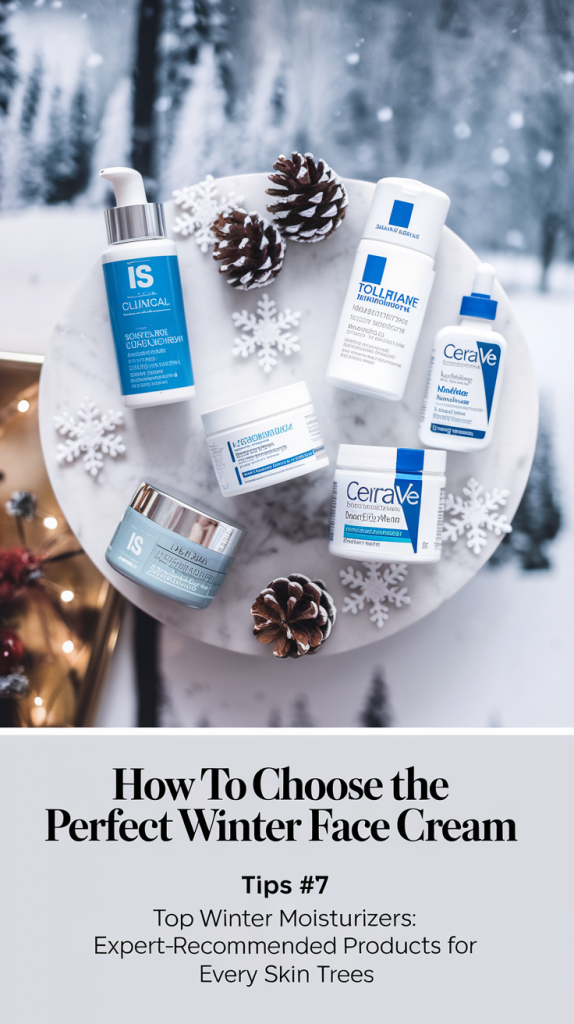
It’s not easy to find the right product for your skin. Here are my top suggestions:
- For Dry Skin: IS Clinical Youth Intensive Cream, and First Aid Beauty Ultra Repair Cream are a couple of effective products.
Buy this Cream For Dry Skin:
- For Oily Skin: La Roche-Posay Toleriane Double Repair Moisturizer is a good choice for this type of skin.
Buy this Cream For Oily Skin:
- For Sensitive Skin: CeraVe Moisturizing Cream, and Neutrogena Norwegian Formula are among the best alternatives.
Buy this Cream For Sensitive Skin:
Conclusion
It’s actually pretty easy to keep up with winter beauty news because there are so many new products. It’s true that winter skincare isn’t rocket science, but it does require a bit more TLC than other seasons. Once you know your skin type, choose the right products and stick to a routine, you can keep your skin hydrated, glowing and beautiful all season long. Don’t break the bank, but invest in a great winter face cream. Your skin will thank you for it!






